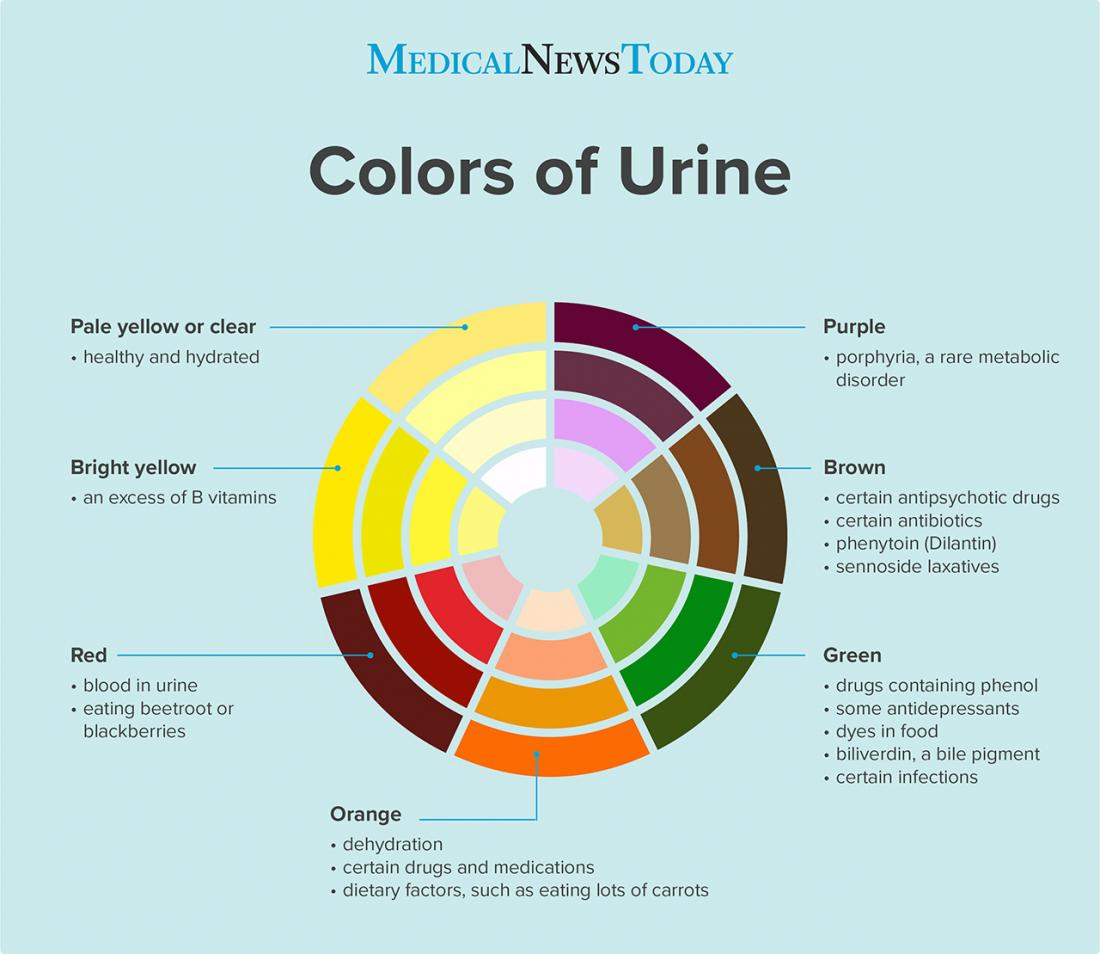Clear urine may indicate proper hydration, but also can be a sign that a person is drinking too much fluid. People with certain health conditions, such as diabetes, may drink and pee more than usual.
This article contains more information on the causes of clear urine, when to see a doctor, and what other urine colors mean.

Clear urine tends to indicate that a person is well hydrated. It could also suggest that they are too hydrated.
If a person has consumed a lot of liquids during the day, they may have too much water in their system.
When this occurs, they can inadvertently dilute their blood and lower their essential salt and electrolyte levels.
In some rare cases, a person may develop hyponatremia. Hyponatremia is a potentially life threatening condition in which the brain swells due to a lack of salt in the body.
According to
If a person has clear urine occasionally, it is most likely that they are very well hydrated on those days.
However, a person may wish to speak to a doctor if they have consistently clear urine, as it may indicate an underlying condition, such as:
Diabetes
Diabetes occurs when the body cannot regulate blood sugar (glucose) levels and therefore cannot use the sugar properly for energy.
People with diabetes often have excessive thirst and feel the need to urinate frequently. The excess urination is from the kidneys trying to get rid of extra sugar and liquid.
Without treatment, diabetes can be life threatening. However, a doctor can easily diagnose it with a blood test, and there are many treatment options.
Learn more about the symptoms of diabetes here.
Diabetes insipidus
Diabetes insipidus is a rare condition that occurs when the kidneys produce an unusually high amount of urine.
According to the National Institute of Diabetes and Digestive and Kidney Diseases, most people pass around
People living with diabetes insipidus do not have issues with their blood sugar levels like those with more common types of diabetes.
Instead, their kidneys cannot balance fluids properly, and their body may make them feel more thirsty than normal to help replace lost fluids.
Underlying kidney problems
If the kidneys are damaged or infected, a person can experience abnormal urination, including clear urination.
They may also have other symptoms, such as painful urination or a fever.
A set of rare conditions known as Bartter syndrome, or potassium wasting, can also cause a person to urinate frequently. If they drink more to compensate, their urine may be clear.
Taking diuretics
Taking diuretics is another possible cause of clear urine. These medications cause the body to produce more urine to flush out extra salts and water.
If a person is taking diuretics, it can cause excessive urination that may be very pale or clear.
Pregnancy
Pregnant women may also develop a form of diabetes called gestational diabetes. The symptoms may be mild but include increased thirst and needing to urinate more often.
Gestational diabetes can increase the risk of pregnancy complications, so a doctor may test for it during a regular checkup. It usually disappears after childbirth.
Urine can vary in color depending on the person and their diet. In many people, urine color may indicate the level of hydration, foods eaten or medications taken, or the presence of an underlying health condition.
The following are some typical colors of urine and what they could indicate:

If a person experiences clear urine, they do not usually need to take any further action. Clear urine is a sign of good hydration and a healthy urinary tract.
However, if they consistently notice clear urine and also have extreme or unusual thirst, it is best to speak to a doctor.
Other colors of urine, such as red, black, or white, could indicate underlying health conditions and require a doctor’s attention.
In most people, clear urine indicates that they are well hydrated.
However, consistently clear urine — even early in the morning, before a person has had water — could be a sign that they have an underlying condition.
Anyone who frequently experiences urine that is not clear or yellow, or who has other urinary tract symptoms such as burning, should speak to a doctor.
